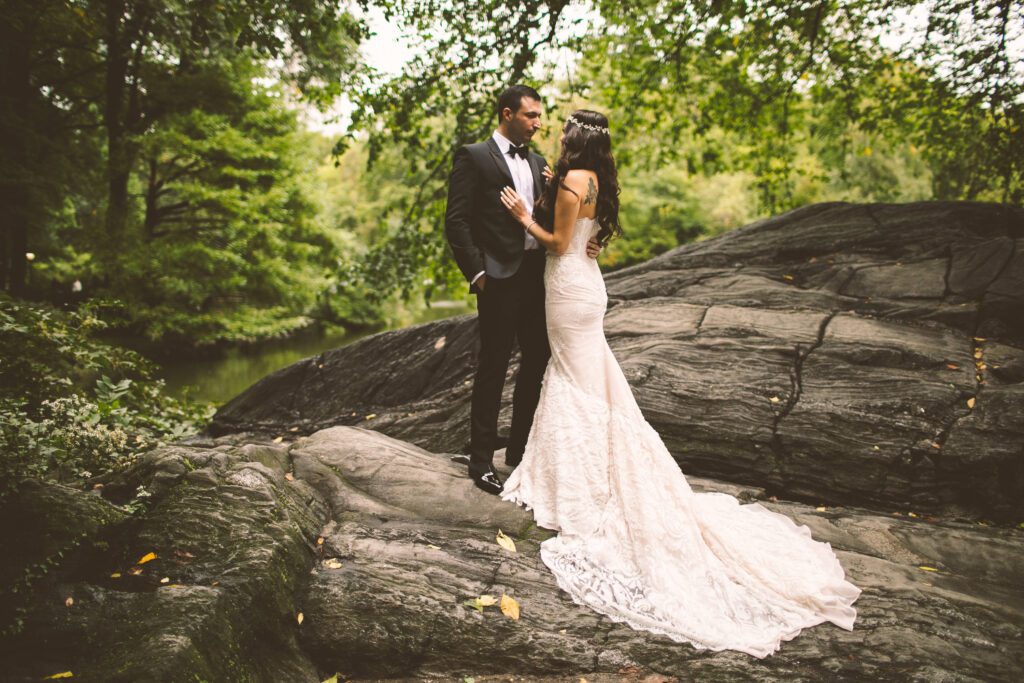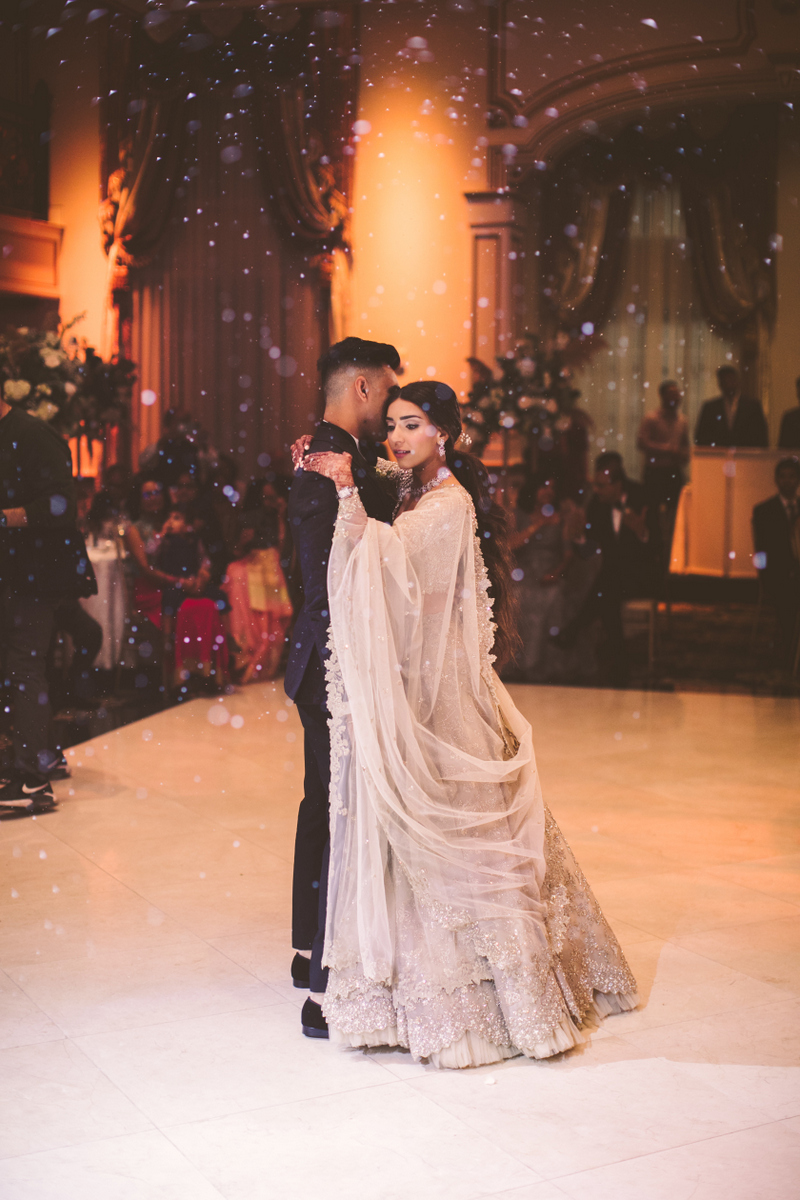Difference Between Eloping and Wedding: A Clear Comparison of the Two Marriage Options
When tying the knot, couples face a big decision: eloping or a traditional wedding? Eloping typically means a much smaller, intimate setting with few witnesses. Weddings, however, involve large guest lists and elaborate planning.
With average U.S. costs from $30,000-$33,000+, elopements stand out as budget-friendly. Planning a big wedding also adds complexity and stress. This fundamental difference sets the tone for the entire experience, influencing location and ceremony style. The difference between eloping and wedding goes far beyond cost—it shapes the entire atmosphere and intent of the celebration.
Understanding these distinctions is key. It can help couples decide which option best aligns with their values, their unique wishes for the big day. Knowing what each choice entails can lead to a more fulfilling path forward, one that captures the essence and emotions of your wedding experience, perhaps beautifully documented through the candid wedding photography approach of Julian Ribinik.

Definitions
How couples marry varies greatly, from securing one of the most beautiful wedding venues in the world for a lavish celebration to creating quiet, private moments. This choice reflects their unique way of celebrating commitment.
What Is Eloping?
So, what does it really mean to elope? Essentially, it involves stripping the wedding down to its core elements: the couple, their commitment, and the intimacy of that moment. This usually translates to an intimate ceremony with minimal planning and less formality than a big wedding.
While old stories might picture couples running off in secret, modern elopement weddings typically include fewer guests, perhaps their absolute closest friends or family, typically 20 people or fewer.
The real draw lies in its flexibility. A couple might hold a private ceremony to exchange vows on a breathtaking clifftop, quietly at city hall, or even fly off to a place that holds special meaning just for them.
What Constitutes a Wedding?
A traditional big wedding marks a marriage with a more formal, public ceremony, contrasting sharply with an elopement’s intimate wedding. Expect extensive guest lists, usually 50 to 200+ guests, joining a celebration often shaped by traditions, rituals, and careful scheduling.
The extensive planning required for wedding venues, food, and various services frequently warrants hiring a wedding planner. It functions as a community event, publicly declaring the couple’s commitment.
Historical Context: Difference Between Eloping and Wedding
How we understand ‘elopement’ and ‘wedding’ has altered dramatically through history. Examining their evolution reveals much about changing social norms and marital customs.
Elopement in the Past
Historically, eloping often stemmed from social pressures (like defying parents or avoiding arranged marriages, common in the 18th-19th centuries) or financial necessity. The Great Depression, for example, saw many couples choose simple, affordable small weddings focused purely on their bond.
Evolution of Traditional Weddings
Traditional weddings have changed greatly. The once elaborate ceremony centered on family alliances and local customs has gradually shifted to the couple’s personal bond. Reflecting this increased emphasis on the couple, personalization has become a major trend. This extends to every aspect of the journey, from symbolic early steps like thoughtful engagement ring shopping in New York City, to planning unique celebrations, whether grand or intimate, that truly express their own values.
Cultural Significance
Societal perceptions and values profoundly influence how the two distinct marital celebrations are viewed and experienced.
Elopement’s Cultural Perception
Elopements, once viewed as rebellious secrets, are now seen differently. Modern couples often choose them seeking simplicity, deep connection, and autonomy, representing a deliberate choice symbolizing freedom, not just avoiding tradition.
Cultural Expectations of Weddings
Deeply rooted cultural and family expectations often shape traditional weddings, influencing everything from guest lists to rituals. These events publicly affirm the union, strengthening community ties and sometimes showcasing heritage.
Unlike elopements, the focus lands squarely on shared experience and cultural expression.
Legal Requirements
Both elopements and traditional weddings require adherence to legal marriage requirements, though the process surrounding them differs.
- Elopement Legalities: While generally simpler, elopements still require:
- Marriage License: Essential in most jurisdictions.
- Witnesses: Requirements vary by location; some places require them, others don’t.
- Recording: The marriage must be officially recorded. Failure to follow legal steps can jeopardize the marriage’s validity, despite the privacy elopements offer.
- Wedding Legalities: Traditional weddings involve the same core legal steps, often integrated into a more formal structure:
- Marriage License: Mandatory.
- Officiant: A legally recognized officiant is usually required.
- Witnesses: Most locations require witnesses to sign the certificate. Couples must research and comply with local laws for either option.
Planning and Preparation
Organizing the details from engagement to the wedding day looks vastly different for an elopement compared to a traditional ceremony. Preparation for each diverges significantly in complexity, timelines, and the scope of tasks required.
Elopement Planning
Elopement wedding planning usually feels much simpler and more relaxed. Couples find they have a lot more freedom picking dates and places, without juggling complicated restrictions. The main tasks typically involve finding that perfect spot and figuring out the local marriage laws.
Budgeting is often more straightforward, too, perhaps freeing up funds for special touches that mean a lot to the couple. Plus, usually only an officiant and photographer need arranging, simplifying vendor coordination.
Big Wedding Preparation
Planning a traditional wedding is a significant undertaking demanding detailed effort over a long period, often starting months or even years out.
Couples tackle key early decisions about the guest list and venue, which means researching options like popular wedding venues in NJ if they’re in that area, and typically needing to book far in advance. Managing logistics involves coordinating numerous vendors (like caterers, florists, and entertainment), and vigilant budget tracking throughout is vital for the sizable event.

Cost Implications
Eloping versus a traditional wedding means a stark contrast in costs. Each approach involves distinct expense categories and budget realities.
Elopement Costs
Choosing to elope usually means significant savings compared to a traditional wedding; couples might spend somewhere in the $5,000 to $15,000 range overall. This budget often needs to cover key elements like travel and lodging (especially for destination elopements), plus the officiant, wedding attire, and photography.
A huge plus is how eloping lets couples channel their funds towards the aspects of their day that truly matter most to them personally.
Wedding Budget
Considerably higher costs are the norm. Major expenses include wedding venue rental, catering per person, attire, decorations, entertainment, and photography/videography. Hidden costs like favors or rehearsal dinners can also arise, requiring careful budget management.
Guest Involvement and Experience
Think about the guests, and you’ll see a huge difference between eloping and a traditional wedding.
When a couple elopes, the spotlight stays firmly on them. If any guests are there, it’s almost always just a handful of their very closest people. This small scale lets the couple really connect with everyone present and share deep, personal moments without the buzz of a large event.
Weddings operate differently, often having a larger number of guests who expect to participate. Guests might join in specific traditions, eat and drink together, hit the dance floor, or listen to speeches. This creates a real party atmosphere, a feeling of shared joy and community celebration.
The flip side? With dozens or hundreds of people around, it’s naturally harder for the couple to have meaningful, one-on-one conversations with absolutely everyone, unlike the focused setting an elopement provides.
Personalization and Customization
Making a wedding uniquely yours is a priority for many couples. While both elopements and traditional weddings offer personalization, the freedom and ways to customize often differ.
Elopement Personal Touch
Elopement offers maximum freedom for personalization. Couples can choose unique locations, wear non-traditional attire, write their own vows, or incorporate deeply personal rituals, tailoring the day entirely to their preferences.
Customizing a Wedding Day
While potentially limited by scale and tradition, weddings offer customization through themes, décor, music choices, and food. Personalization often involves incorporating family traditions, cultural elements, and ways to make guests feel included, like personalized favors or ceremony roles.
Exchanging Vows: Public and Private Declaration
Elopements and traditional weddings treat vow exchanges differently: one as a private moment, the other as a public declaration.
Private Nature of Elopement
Elopements prioritize privacy. Couples typically announce their marriage after the fact, controlling how and when they share the news, often through personal calls, social media, or small announcement gatherings.
Wedding as a Public Affair
Weddings are inherently public declarations of commitment, witnessed by invited family and friends. The planning process includes formal invitations, and the event itself serves as a community affirmation of the couple’s union.
After the Event
What happens after saying “I do”? Elopements and traditional weddings each bring distinct post-ceremony experiences and focuses.
Post-Elopement Considerations
Couples focus on announcing their marriage, potentially planning a later, casual celebration with loved ones, and ensuring all legal documentation is finalized. The period emphasizes intimacy and settling into marriage without immediate post-large-event tasks.
Life After a Wedding Celebration
Often involves immediate tasks like departing for a honeymoon and writing thank-you notes. Couples navigate the social transition into married life, potentially managing gifts and adjusting to shared finances or living arrangements, alongside the memories of the shared celebration.
Frequently Asked Questions
What are the legal implications of eloping versus having a traditional wedding?
Whether couples elope or have a full wedding, the fundamental legal steps don’t change. A marriage license is non-negotiable, and local laws regarding officiants and potential witnesses must be followed. An elopement could mean less associated paperwork or fewer procedural hurdles than a large wedding. However, for the marriage to be legally recognized, those essential conditions have to be satisfied in either scenario.
What distinguishes an elopement from a micro wedding in terms of scale and planning?
It mostly comes down to the number of guests and how much wedding party planning is involved. Elopements keep things tiny, maybe 20 people at the very most, often just the couple, which means not much advance prep is needed. Micro weddings welcome a slightly larger crowd, usually between 20 and 50 friends and family members. Because more people are involved, there’s more to organize than for an elopement, though it’s definitely less work than planning a big traditional wedding.
Can you be legally married without a traditional wedding ceremony?
Yes, an intimate elopement results in a legally valid marriage if all legal requirements (license, officiant, witnesses if needed) are met.
What are the key considerations when deciding whether to elope or have a wedding?
Consider budget, desired intimacy level, planning effort tolerance, and whole family/social expectations. Elopements favour intimacy and cost-effectiveness; weddings favour a big party, higher guest count, and traditional elements.
How do elopement packages differ from typical wedding arrangements?
Elopement packages are often simpler, bundling basics like officiating and photography for a specific location. Wedding arrangements are comprehensive, involving coordinating many separate vendors for a larger event.
What should couples consider about the impact of eloping versus having a wedding on family and friends?
Eloping may disappoint some who expected to attend a wedding. A traditional wedding includes more people but requires managing varied expectations and dynamics. Communication about the choice is key in both scenarios.
